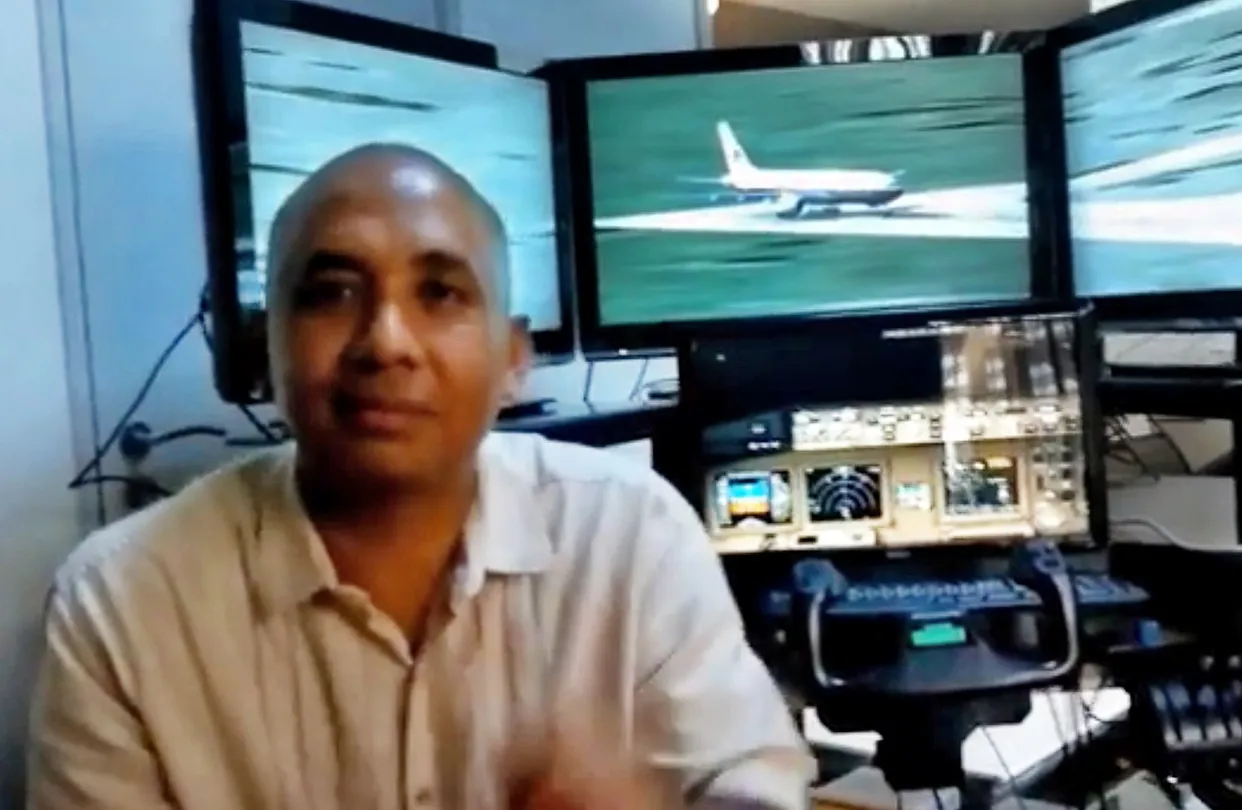
MH370 PILOT MAY HAVE BEEN DISORIENTED NEW STUDY FINDS
Sep 08, 2022

A recent study suggests that the pilot of Malaysia Airlines Flight MH370 may have experienced disorientation shortly before the aircraft vanished in 2014. Researchers analyzed flight data and simulations, indicating that the pilot could have been affected by factors such as sudden altitude changes and the complex navigation environment. This disorientation may have contributed to the aircraft's deviation from its planned route and subsequent loss of communication. The findings aim to shed light on the mysterious circumstances surrounding the disappearance, which has remained one of aviation's greatest unsolved puzzles, prompting ongoing interest and investigation into the incident.
The mystery surrounding Malaysia Airlines Flight MH370 continues to intrigue and perplex aviation experts and the general public alike. A recent study has suggested that the pilot of the ill-fated flight may have been disoriented at critical moments leading up to the plane's disappearance. This new information sheds light on potential human factors that could have contributed to the tragic event.
Understanding Pilot Disorientation
Pilot disorientation can occur due to a variety of reasons, including environmental factors, fatigue, and mental stress. In the case of MH370, several researchers have delved into the cockpit voice recordings and flight data to assess the possibility of disorientation affecting the pilot's decision-making process.
Disorientation can lead to a loss of situational awareness, which is crucial during critical phases of flight. In the chaotic moments before MH370 vanished from radar, any form of disorientation could have had dire consequences, potentially contributing to the aircraft's final trajectory.
Key Findings from the Study
The study indicates that the pilot's mental state may have been compromised due to various stressors, including the challenges of navigating through adverse weather conditions. The researchers analyzed the following factors:
| Factor | Impact on Pilot |
|---|---|
| Fatigue | Decreased alertness and reaction time |
| Weather Conditions | Reduced visibility and increased stress |
| Technical Issues | Potential distraction and confusion |
| Personal Factors | Emotional strain impacting focus |
These factors combined could have led to an impaired ability to make sound judgments, particularly during the crucial moments when the aircraft deviated from its intended flight path.
The Role of Situational Awareness
Situational awareness is a critical aspect of flying, enabling pilots to make informed decisions based on real-time information. According to aviation experts, a lapse in situational awareness can have catastrophic consequences, especially in high-pressure situations like those faced by the MH370 crew.
Research suggests that maintaining situational awareness requires a combination of experience, training, and mental acuity. The findings from the recent study emphasize the importance of ensuring pilots are equipped to handle stressors that may affect their performance.
Implications for Aviation Safety
The revelations from this study have significant implications for the aviation industry. Understanding how pilot disorientation can impact flight safety is crucial for developing training programs that better prepare pilots to handle unexpected situations. Here are some potential changes that could arise:
- Enhanced training on managing fatigue and stress.
- Increased focus on situational awareness in pilot training curricula.
- Implementation of regular psychological assessments for pilots.
By addressing these areas, the aviation industry can work towards minimizing the risk of disorientation among pilots, ultimately enhancing flight safety for all passengers.
Conclusion
The study suggesting that the pilot of MH370 may have been disoriented adds a new layer of complexity to the investigation into the aircraft's disappearance. While the reasons behind the incident remain largely speculative, understanding the potential for human error is crucial in preventing similar tragedies in the future. As the aviation community continues to seek answers, it is essential to prioritize pilot training and support systems that promote mental well-being and situational awareness.
In conclusion, the findings from this study serve as a poignant reminder of the human factors that play a significant role in aviation safety. As we reflect on the lessons learned from MH370, it becomes increasingly clear that addressing pilot disorientation and its underlying causes is imperative for the future of air travel.
Related Articles

Explore Thailand: The Best Islands to Visit for Paradise, Adventure, and Relaxation

The Ultimate Guide to the Best Islands in Thailand for Your Next Getaway

Do babies need passports? How to get a passport for a newborn

How to get a U.S. passport fast: here’s how to expedite the process

What is Mobile Passport Control: 5 reasons why you should use it

SENTRI vs. Global Entry: A detailed guide

Do you need a passport to go to the Bahamas? Let’s find out

Do you need a passport to go to Mexico? A detailed guide

Do you need a passport to go to Canada? We got the answer

Do You Need a Passport for a Cruise: An Essential Travel Guide

Booster Seat Requirements: All the Rules to Follow in Your Rental Car

What Are the World’s Most Powerful Passports, and How Does Yours Rank?

How to Take a Passport Photo at Home: A Helpful Guide

You've got to have heart! Southwest's new livery

Your opinion: Should water be free on low cost carriers?

Young women bolder than guys as solo travellers
